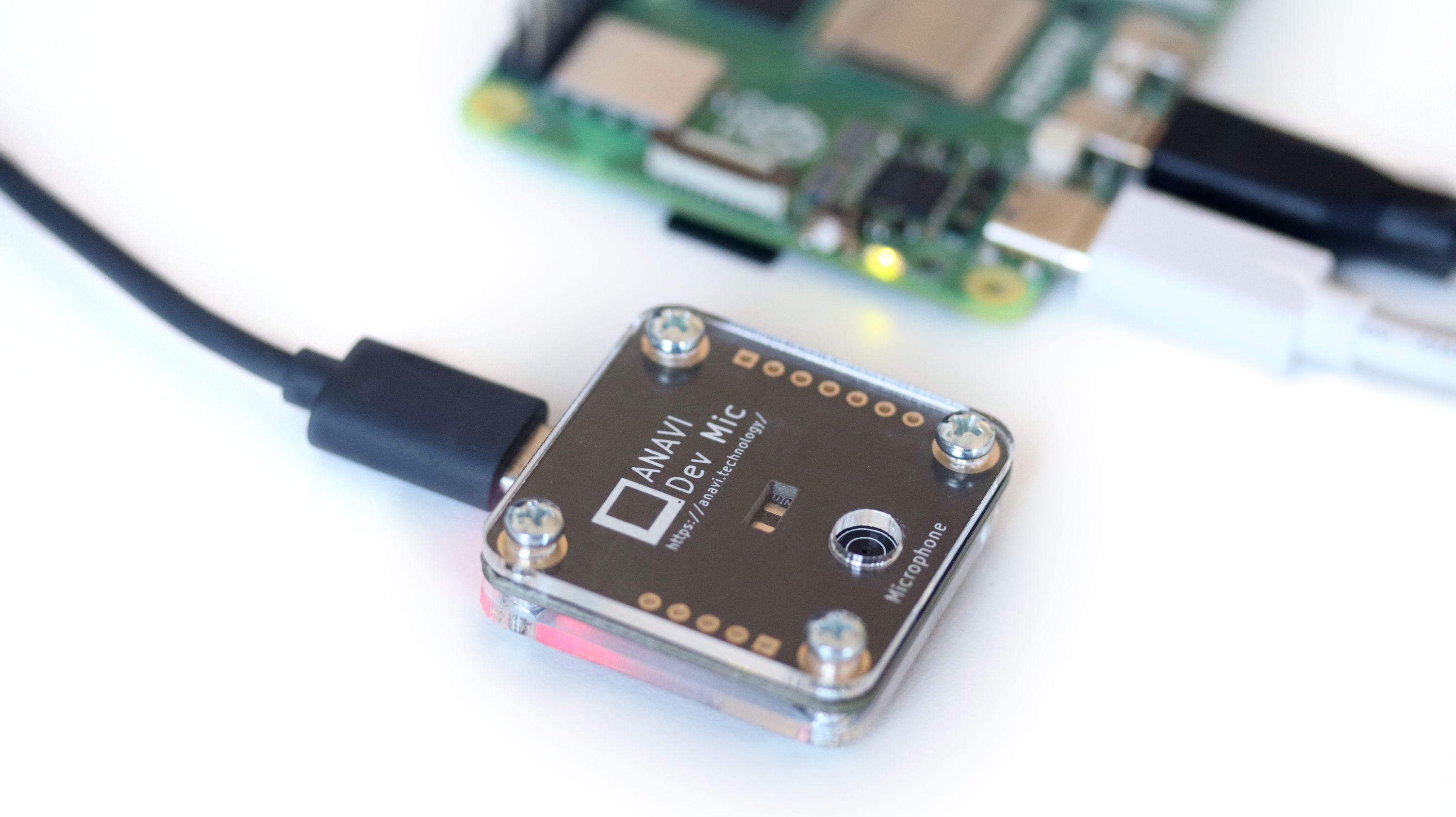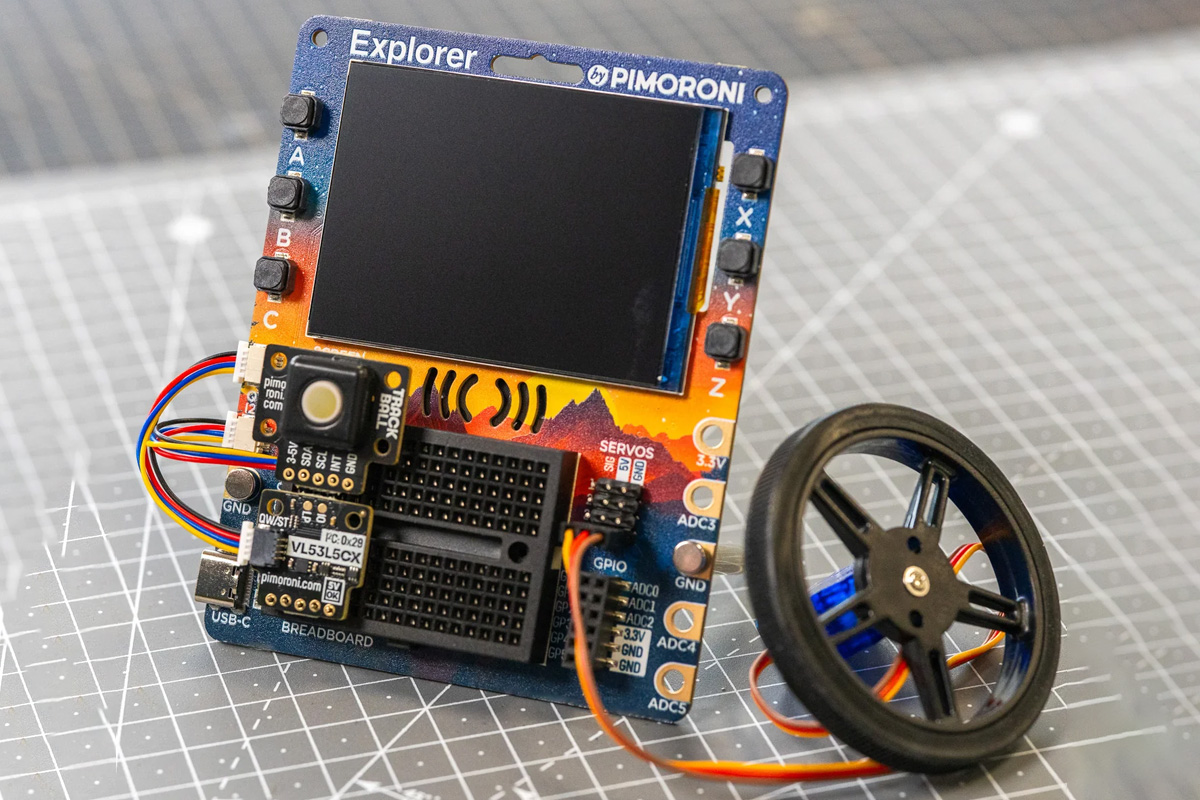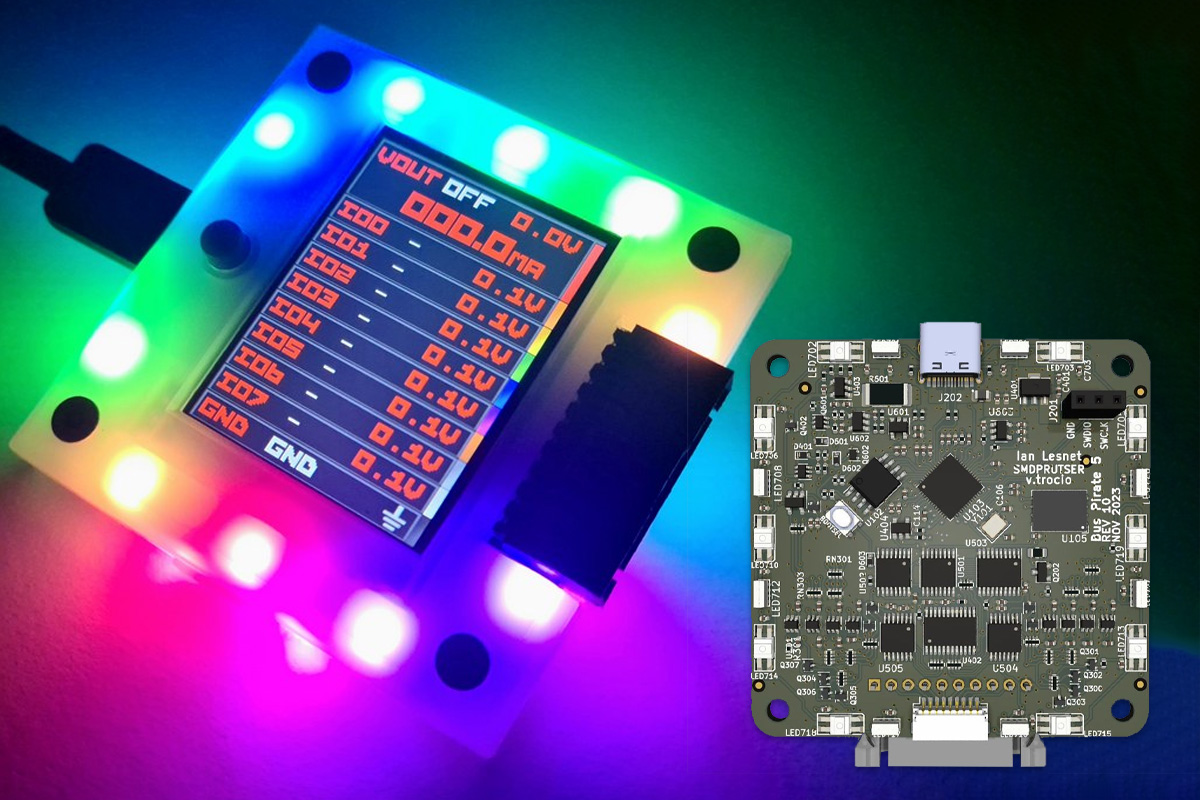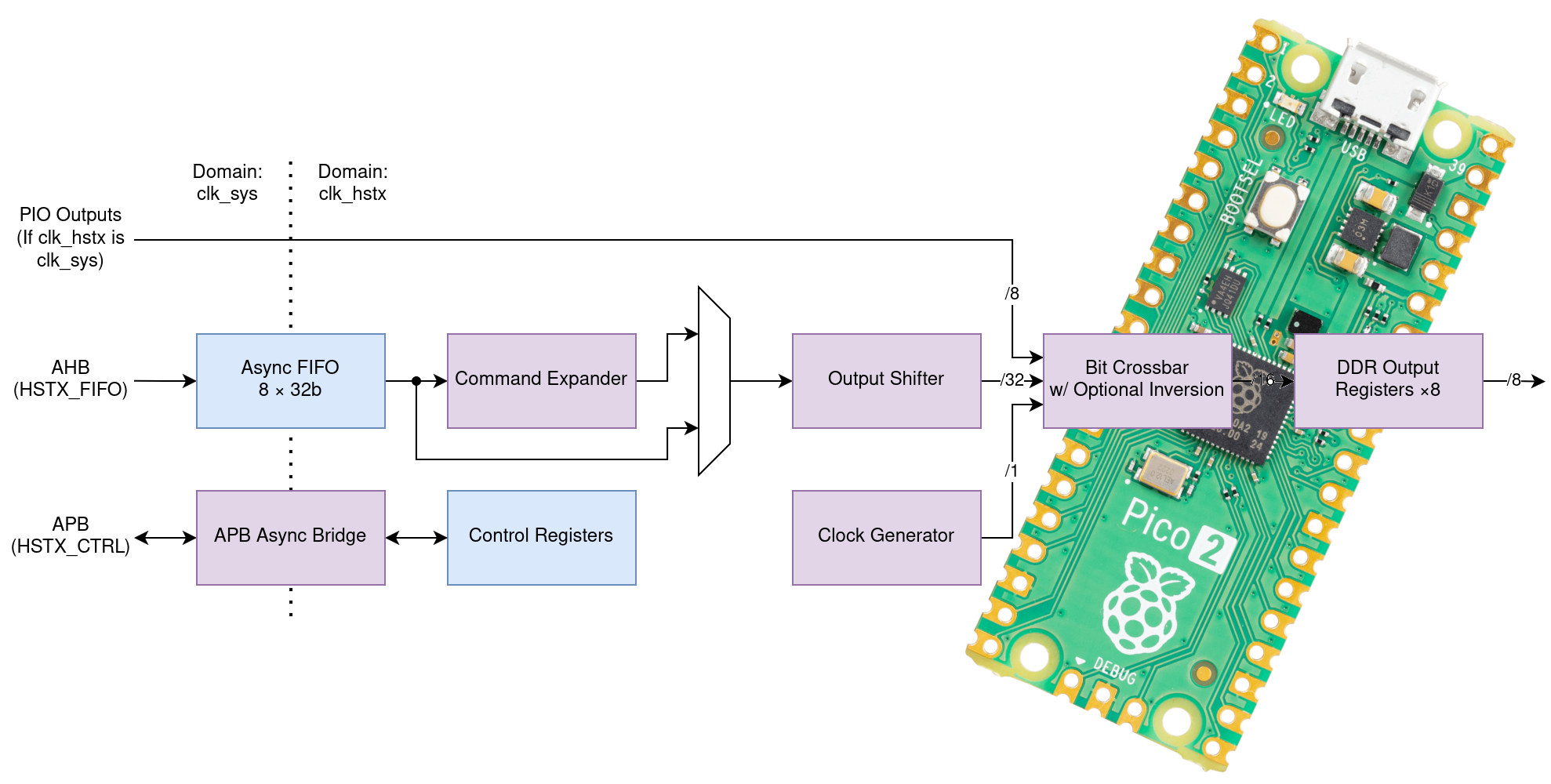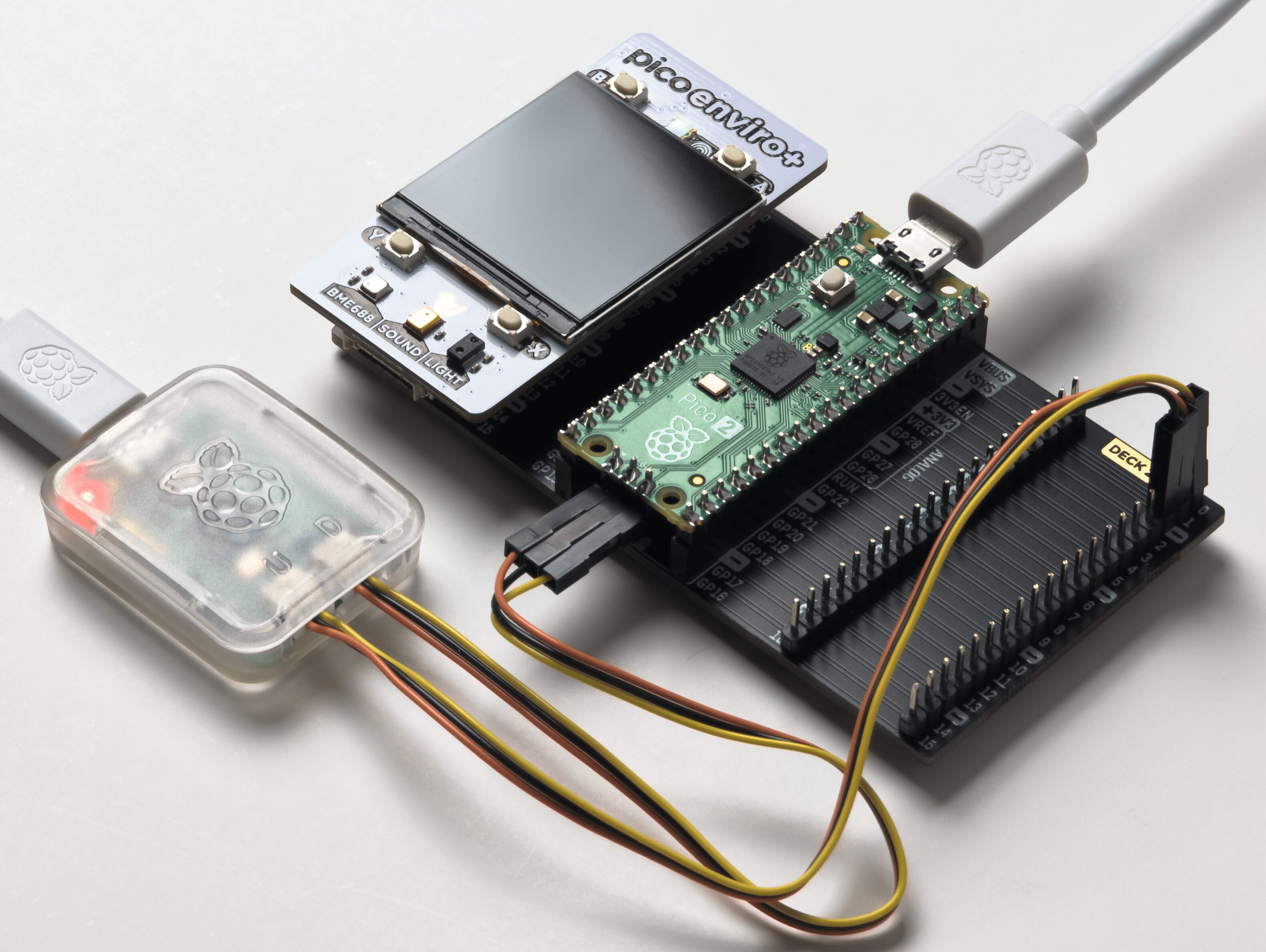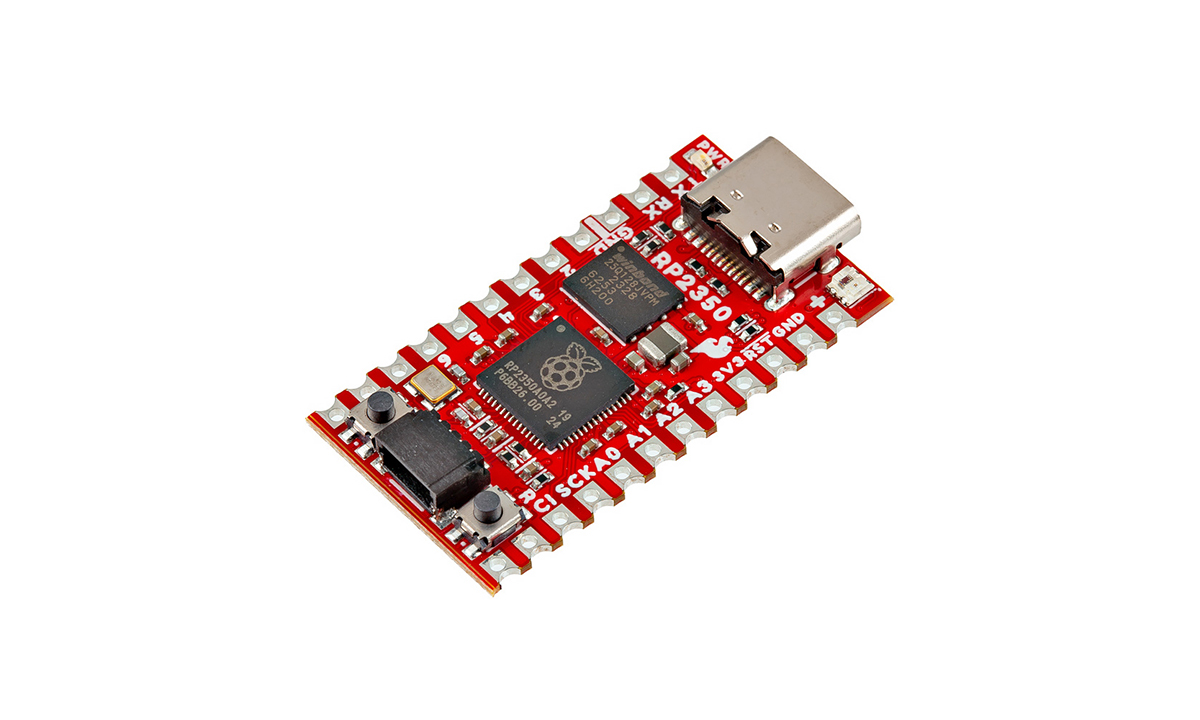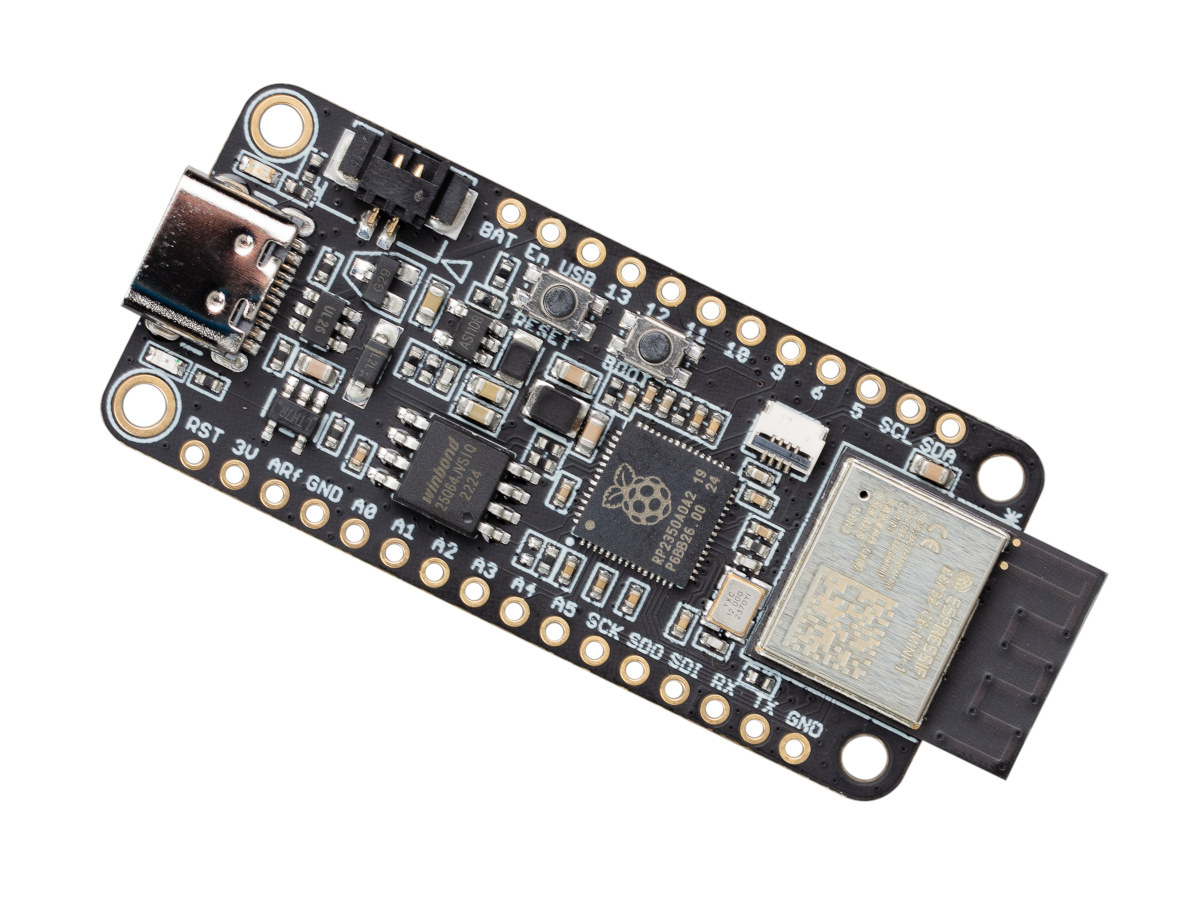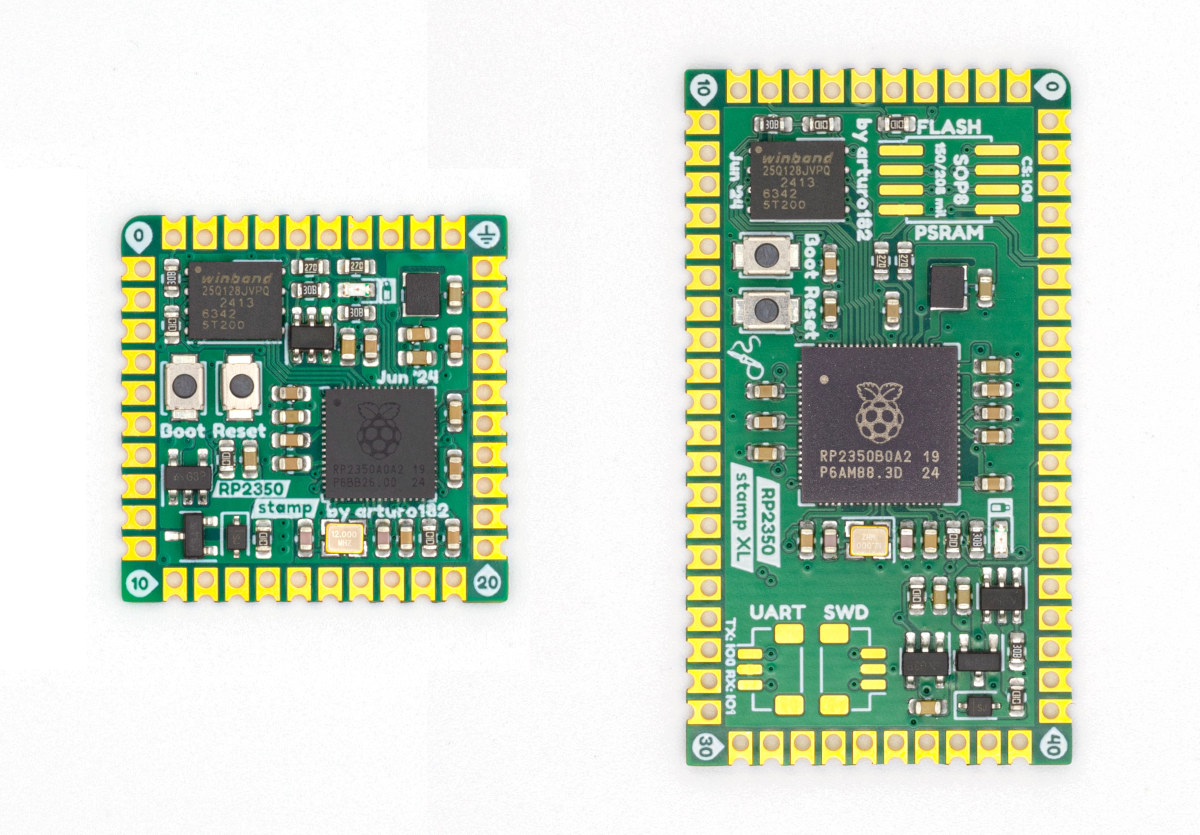The ANAVI Dev Mic is an open-source microphone board from ANAVI Technology in Plovdiv, Bulgaria powered by the Seeed Studio XIAO RP2040 module and an omnidirectional digital microphone from STMicroelectronics. It is a compact and affordable product that outperforms USB microphones in artificial intelligence and machine learning voice applications. The design is simple and unassuming, with the Seeed Studio XIAO RP2040 module in the center, surrounded by a USB-C port for power and programming and 9 GPIO pins for extensibility. The STMicroelectronics MP23DB01HP microphone (MK1) is mounted on the top of the board with a small hole on the bottom. It is a compact, low-power, digital MEMS microphone capable of capturing sounds from different directions with very low distortion. It uses a PDM (Pulse-Density Modulation) interface created via the programmable inputs/outputs (PIO) on the RP2040. The ANAVI Dev Mic is applicable for conducting AI/ML research, building a voice recognition platform, […]
Pimoroni Explorer board is a Raspberry Pi RP2350-based learning platform with 2.8-inch LCD, breadboard sensors and more
The Pimoroni Explorer board is an electronic prototyping board built around the Raspberry Pi RP2350 chip with a 2.8-inch LCD screen, a speaker connector, and various I/Os, which makes it easy to build circuits, prototype projects, and even make small robots. It also features a mini breadboard, tactile buttons, and crocodile clip terminals, making it suitable for both beginners and experienced makers. The RP2350 MCU was recently released by Raspberry Pi Limited along with the $5 Raspberry Pi Pico 2 board. Since that initial release, we have seen many RP2350-based development boards like the Cytron MOTION 2350 Pro, the Bus Pirate 5XL and 6, and many other development boards released, feel free to check those out if you are looking for development boards built around the RP2350 MCU. Pimoroni Explorer board specifications Microcontroller – Raspberry Pi RP2350B MCU CPU Dual-core Arm Cortex-M33 @150MHz with Arm Trustzone for secure boot Dual-core 32-bit […]
Bus Pirate 5XL and 6 hardware debugging tools utilize Raspberry Pi RP2350A and RP2350B microcontrollers
The Bus Pirate 5XL and 6 are open-source hardware debugging tools respectively based on Raspberry Pi RP2350A and RP2350B and designed to simplify interaction with various bus protocols like 1-Wire, I2C, SPI, UART, several LEDs, and more. The idea is to send commands to a chip or sensor and get the response, without writing a single line of code making it ideal for hardware hacking and tinkering. The devices feature buffered I/O pins with voltage and current measurement, a programmable power supply with current limiting, an RGB LCD for pin status and info, and an auxiliary header for connecting logic analyzers. All these features make this device useful for applications like debugging circuits, prototyping projects, and reverse engineering devices. The new devices are updates to the Bus Pirate 5 based on Raspberry Pi RP2040 MCU. You’ll find Bus Pirate specifications for the three models in the table below. The original […]
A closer look at Raspberry Pi RP2350’s HSTX high-speed serial transmit interface
The Raspberry Pi RP2350 microcontroller adds an HSTX (High-Speed Serial Transmit) interface adding the PIOs (Programmable IOs) introduced on the Raspberry Pi RP2040 three years ago. The RP2350 MCU now has three PIOs and one HSTX interface going over 8x GPIOs. So let’s try to better understand what HSTX is exactly, what it is used for, and how it differs from PIOs. We’ll also check out some programming examples in C and MicroPython. The high-speed serial transmit (HSTX) interface is detailed in the RP2350 datasheet starting on page 1118 where it reads “The high-speed serial transmit (HSTX) interface streams data from the system clock domain to up to 8 GPIOs at a rate independent of the system clock”. Reading further, we also learn that it runs at 150 MHz enabling up to 300 Mbps per pin with DDR output operation, or a combined 2,400 Mbps over 8 pins if I […]
Google Pigweed SDK now supports Raspberry Pi RP2350 microcontroller
Google Pigweed, a collection of open-source libraries for embedded software development, now supports the Raspberry Pi RP2350 MCU and comes as a software development kit (Google Pigweed SDK). These libraries, also called modules, are building blocks that make embedded software development faster and more reliable. It targets tiny 32-bit microcontrollers such as STMicro STM32L452, Nordic Semi nRF52832, and the Raspberry Pi Pico line of microcontrollers. The library components have shipped in Google Pixels, Nest thermostats, robots, satellites, and drones. On August 8, the Pigweed project was released as a software development kit (SDK) in developer preview with official support for Raspberry Pi RP2350 and the associated Pico 2 development board. The new release uses the Bazel build system – a feature upstreamed into the Pico SDK by the Google Pigweed team – and a complete, open-source Clang/LLVM toolchain. The Google Pigweed SDK includes sample code, modules, and a comprehensive tutorial […]
SparkFun Pro Micro – RP2350 development board comes with 16MB flash, 8MB PSRAM
The SparkFun Pro Micro – RP2350 is a compact and powerful development board built around the RP2350 chip from Raspberry Pi and equipped with 16MB flash and 8MB PSRAM. It follows the updated Pro Micro design and includes a USB-C connector, Qwiic connector, WS2812B RGB LED, Boot and Reset buttons, resettable PTC fuse, and both PTH and castellated solder pads. Last week, besides the Raspberry Pi Pico 2, we wrote about more boards with the Raspberry Pi RP2350, like the XIAO RP2350, Solder Party’s RP2350 Stamp, and Cytron MOTION 2350 Pro. Feel free to check them out if you are interested in these boards. SparkFun Pro Micro – RP2350 specification Microcontroller – Raspberry Pi RP2350A MCU CPU Dual-core Arm Cortex-M33 @150MHz with Arm Trustzone for secure boot Dual-core 32-bit Hazard3 RISC-V @ 150MHz Up to two cores can be used at the same time Memory – 520 KB on-chip SRAM […]
Challenger+ RP2350 WiFi6/BLE5 board combines Raspberry Pi RP2350 MCU with ESP32-C6 WiFi 6 and Bluetooth 5.4 LE module
You don’t need to wait for the Raspberry Pi Pico 2 W to get a Raspberry Pi RP2350 board with WiFi and Bluetooth thanks to the Challenger+ RP2350 WiFi6/BLE5 board that combines an RP2350A microcontroller with an ESP32-C6 module offering 2.4 GHz WiFi 6 and Bluetooth 5.4 LE connectivity. The board follows the Adafruit Feather form factor with 28-pin through holes for I/Os making it compatible with FeatherWings add-on boards. It comes with a USB-C port for power and programming, and a JST connector plus a charging circuit for people wanting to connect a LiPo battery. Challenger+ RP2350 WiFi6/BLE5 specifications: Microcontroller – Raspberry Pi RP2350A MCU CPU Dual-core Arm Cortex-M33 processor @ 150MHz Dual-core 32-bit RISC-V processor @ 150MHz Only two cores can be used at a given time Memory – 520KB internal RAM 8KB OTP Storage Package – QFN-60; 7×7 mm Memory – 8MB PSRAM Storage – 8MB SPI […]
Solder Party’s “RP2350 Stamp” modules features Raspberry Pi RP2350A or RP2350B microcontroller
Solder Party’s RP2350 Stamp is an update to the company’s tiny RP2040 Stamp module based on a Raspberry Pi RP2350A, and they also introduced the RP2350 Stamp XL module that makes use of the extra GPIO pins on the RP2350B, and a “RP2xxx Stamp Carrier XL” carrier board taking either module. RP2350 Stamp and RP2350 Stamp XL The RP2350 Stamp has exactly the same layout as the RP2040 Stamp and mostly benefits from the more powerful Cortex-M33 cores, additional memory, and security features, while the XL variant adds more GPIOs, footprint for a PSRAM chip, as well as UART and SWD connectors. Both come with a 16MB SPI flash for storage. RP2350 Stamp specifications: Microcontroller – Raspberry Pi RP2350A MCU CPU – Dual-core Arm Cortex-M33 processor @ 150MHz Memory – 520KB internal RAM 8KB OTP Storage Package – QFN-60; 7×7 mm Storage – 16MB flash I/Os – All 30x I/Os […]


